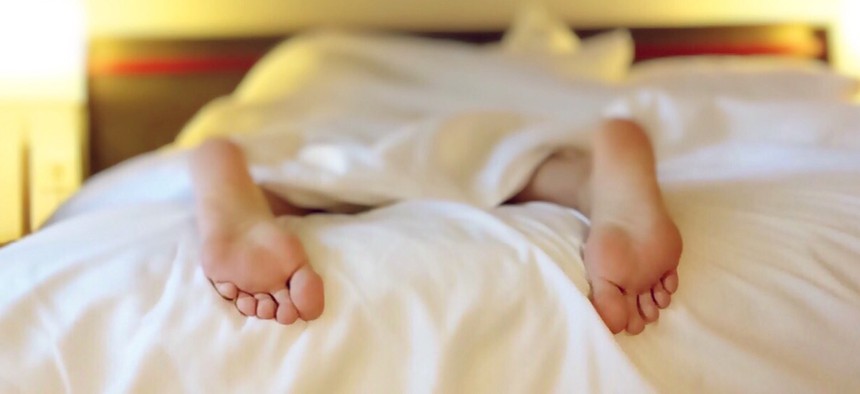
Pixabay.com
Old Brains Need as Much Sleep as Young Brains, but They’re Worse at Getting It
As you age, your brain gets worse at telling itself to shut down at night.
We’re all supposed to be getting between seven and nine hours of sleep every night, and that gets harder and harder to do that as we age—especially once we hit our 50s and beyond. For a while, scientists thought that the older among us simply needed less sleep. But that wouldn’t explain why the elderly tend to feel tired throughout the day—or how often they fall into unplanned naps (paywall).
Scientists are starting to think that that our own brains might get in our way of sleeping as we age. In a review paper published April 5 in Neuron, neuroscientists from the University of California, Berkeley argue that older brains are worse at recognizing the brain signals and patterns that generate deep slumbers.
“It’s almost like a radio antenna that’s weak,” Matthew Walker, a psychologist at Berkeley and lead author of the paper, told Popular Science. “The signal is there, but the antenna just can’t pick it up.”
Walker and his colleagues combed through the existing scientific literature on adult sleeping patterns and found that the problems with poor sleep in the elderly were two-fold. First, they noticed the kind of deep sleep where we store away memories, called non-rapid eye movement sleep, doesn’t happen as well when we’re older. In the deepest segments of our sleep, the parts of neurons that send out electrical impulses to one another send out short bursts of energy called sleep spindles. Based on previous work examining the brains of humans and rodents, Walker and his colleagues think that our neurons’ ability to send these sleep spindles decreases with age—which could also be why memory loss also tends to increase with age.
On top of that, scientists have found that older adults have fewer of the neurons that send out the chemical signals that tell us when to sleep and when to get up. Autopsies of elderly patients revealed fewer-than-expected neurons capable of making galanin, the brain-chemical equivalent of a bedtime story, and orexin, a compound that wakes us up. Fewer neurons means that the brain isn’t able to control the production of these chemicals as well. Walker and his colleagues think that some kind of imbalance with these chemicals is what makes older adults tired during the day, but still unable to fall asleep at bedtime.
There aren’t many therapies targeting the aging brain’s sleep pattern yet. Sleeping pills that knock us out don’t generate the kind of sleep the brain creates on its own, and research on the effects of electrical brain stimulation to enhance deep sleep and memory formation is still budding. But, the team is hopeful that studying the brain’s ability to put itself to bed will be a new avenue for future research into keeping our minds sharp. “Just as some people age more successfully than others, some people sleep better than others as they get older,” Bryan Mander, a psychologist studying sleep with Walker, said in a statement.






